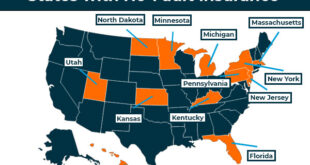Bank Personal Loan: Smart Borrowing A personal loan from a bank can be a lifesaver when you need funds for unexpected expenses, debt consolidation, or major purchases. But before committing, it’s essential to understand what bank personal loans are, how they work, and how to choose the best option for your needs. This guide will walk you through everything you need to know about bank personal loans, with tips, FAQs, and actionable advice to make informed decisions.
What Is a Bank Personal Loan?
A bank personal loan is an unsecured loan offered by banks that allows borrowers to access funds without providing collateral. These loans are typically repaid in fixed monthly installments over a set period, ranging from a few months to several years.
Benefits of Bank Personal Loans
- Flexible Use: Can be used for various purposes like education, medical emergencies, or vacations.
- No Collateral Required: Most personal loans don’t need security, making them accessible.
- Competitive Interest Rates: Banks often offer better rates than payday lenders or credit cards.
- Fixed Payment Terms: Helps with budgeting as repayments are predictable.
- Loan Amount Options: Ranges from small to large sums depending on your creditworthiness.
How to Apply for a Bank Personal Loan
- Assess Your Needs: Determine the loan amount and repayment term you can afford.
- Check Your Credit Score: A higher credit score can improve approval chances and reduce interest rates.
- Research Banks: Compare offers from multiple banks to find the best deal.
- Gather Documents: Prepare documents like ID, proof of income, and bank statements.
- Submit Your Application: Fill out the form online or at a branch and provide required documents.
- Review the Loan Agreement: Carefully read terms before signing.
Factors to Consider When Choosing a Bank Personal Loan
- Interest Rates: Compare rates to find the most affordable option.
- Loan Tenure: Longer terms mean smaller monthly payments but higher total interest.
- Fees and Charges: Look for hidden costs like origination fees or prepayment penalties.
- Eligibility Requirements: Ensure you meet the bank’s criteria before applying.
- Customer Support: Opt for a bank with reliable customer service for smooth processing.
Common Eligibility Criteria
- Minimum age of 18-21 years (varies by bank).
- Stable source of income.
- Good credit score (typically above 650).
- Proof of identity and residence.
Tips to Secure the Best Bank Personal Loan
- Improve Your Credit Score: Pay off debts and avoid late payments.
- Borrow What You Need: Avoid overborrowing to minimize repayment burden.
- Compare Offers: Use online loan comparison tools.
- Negotiate Terms: Some banks may offer better rates if you have a strong relationship with them.
- Opt for Fixed Interest Rates: Fixed rates ensure consistent payments.
- Avoid Unnecessary Fees: Clarify all costs upfront.
- Read the Fine Print: Understand all terms and conditions.
- Use a Co-Signer: A co-signer with good credit can improve approval chances.
- Choose a Trusted Bank: Stick with banks that have good reputations.
- Prepare for Repayments: Budget accordingly to avoid defaults.
10 FAQs About Bank Personal Loans
- What can I use a bank personal loan for?
You can use it for almost anything, including medical bills, home renovations, or consolidating debt. - How is the interest rate determined?
Rates depend on your credit score, income, and the bank’s policies. - Can I apply for a personal loan online?
Yes, most banks offer online application services. - What happens if I miss a payment?
Late payments may incur penalties and negatively impact your credit score. - Are personal loans tax-deductible?
Generally, no, unless used for business or education. - Can I repay my loan early?
Some banks allow early repayment but may charge a prepayment penalty. - Do all banks offer personal loans?
Most do, but offerings and terms vary significantly. - What’s the difference between secured and unsecured loans?
Secured loans require collateral; unsecured loans do not. - Can I refinance my personal loan?
Yes, refinancing can help reduce your interest rate or monthly payments. - What’s the typical loan processing time?
It can range from a few hours to a few days, depending on the bank.
Conclusion
Bank personal loans are a versatile and accessible financial tool that can help you meet various needs, from emergencies to planned expenses. By understanding the loan process, comparing options, and managing your credit wisely, you can secure a loan that fits your budget and goals.
Take time to evaluate your needs, research thoroughly, and make informed decisions. A well-chosen bank personal loan can provide the financial flexibility you need while ensuring peace of mind.
 Gerbang Finance
Gerbang Finance

